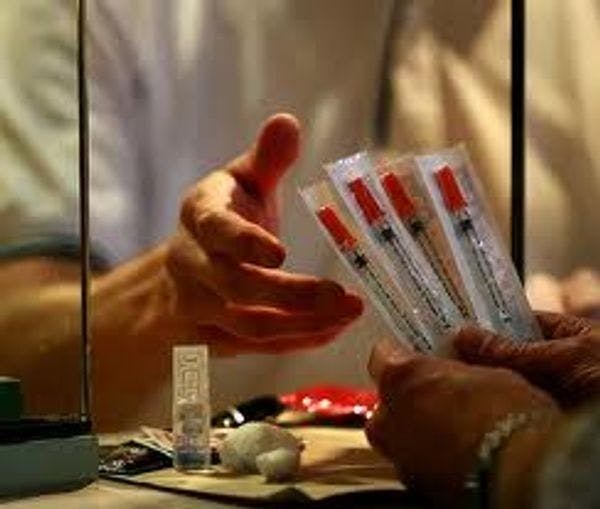Les experts veulent des seringues et de préservatifs pour les détenus pour freiner le VIH
Le traitement de substitution aux opiacés et les mesures de réduction des risques sont essentiels pour lutter contre le VIH et d'autres infections dans les prisons eurasiennes.Pour en savoir plus, en anglais, veuillez lire les informations ci-dessous.
Abonnez-vous à l'Alerte mensuelle de l'IDPC pour recevoir des informations relatives à la politique des drogues.
"We support opioid substitution treatment and harm reduction measures, including needle exchange programmes. These measures are crucial, otherwise we cannot tackle HIV and other infections in prisons," Stefan Enggist of the World Health Organisation (WHO) said during an international conference on addiction in prisons organised by the Council of Europe in Bucharest.
In Eastern Europe and Central Asia, the number of people living with HIV surged by 250 percent from 2001 to 2010, with Russia and Ukraine accounting for almost 90 percent of the region's epidemic, UNAIDS figures show.
Prison populations are among the most vulnerable. Estimates released by AVERT, an international HIV and AIDS charity, show that 55,000 out of Russia's 846,000 inmates were infected with HIV in 2010. In Estonia, four studies revealed HIV prevalence in prisons ranging from 8.8 to 23.9 percent.
However, only 60 prisons around the world conduct needle and syringe exchange programmes, said Heino Stover, a professor at Frankfurt University.
Click here to read the full article.
Keep up-to-date with drug policy developments by subscribing to the IDPC Monthly Alert.
Sujets
Profils associés
- Joint United Nations Programme on HIV and AIDS (UNAIDS)
- World Health Organization (WHO)
